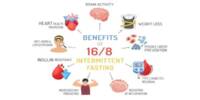The Mediterranean diet consists of a high intake of fruits and vegetables, whole grains, nuts, and olive oil, as well as a moderate intake of fish and poultry and a low intake of red meat and dairy products. It is inspired by the traditional dietary patterns of Mediterranean Sea countries.
According to a study published in the journal Molecular Nutrition and Food Research, older people who eat a Mediterranean diet have a lower risk of cognitive decline. The study adds to our understanding of the biological mechanisms underlying the impact of diet on cognitive health in an aging population.
Mireia Urp-Sardá, adjunct lecturer and member of the Biomarkers and Nutritional & Food Metabolomics research group of the Faculty of Pharmacy and Food Sciences, the Institute for Nutrition and Food Safety (INSA-UB), the Food and Nutrition Torribera Campus of the University of Barcelona, and the CIBER on Frailty and Healthy Ageing (CIBERFES), is the study’s principal investigator.
This European study, part of the Joint Programming Initiative “A Healthy Diet for a Healthy Life” (JPI HDHL), lasted twelve years and included 840 people over the age of 65 (65% of whom were women) from the French regions of Bourdeaux and Dijon.
We found that adherence to the Mediterranean diet as assessed by a panel of dietary biomarkers is inversely associated with long-term cognitive decline in older people.
Alba Tor-Roca
Healthy diet and cognitive performance
According to Cristina Andrés-Lacueva, UB professor and head of the CIBERFES group, “within the framework of the study, a dietary metabolomic index has been designed – based on biomarkers obtained from the participants’ serum – on the food groups that form part of the Mediterranean diet. Once this index is known, its association with cognitive impairment is evaluated.”
In the study, baseline levels of saturated and unsaturated fatty acids, gut microbiota-derived polyphenol metabolites, and other phytochemicals in serum that reflect individual bioavailability were chosen as biomarkers. Some of these indicators have not only been recognized as marks of exposure to the main food groups of the Mediterranean diet but have also been held responsible for the health benefits of the Mediterranean dietary pattern.

From the start of the study, the metabolome, or set of metabolites related to food and derived from gut microbiota activity, was studied using a large-scale quantitative metabolomic analysis of the serum of participants without dementia. Over the course of twelve years, five neuropsychological tests were used to assess cognitive impairment.
As a result, the study reveals a protective relationship between the Mediterranean diet score and cognitive decline in older people based on serum biomarkers.
Biomarkers to study the benefits of the diet
According to Mercè Pallàs, professor at UB Neurosciences Institute (UBneuro), “the use of dietary pattern indices based on food-intake biomarkers is a step forward towards the use of more accurate and objective dietary assessment methodologies that take into account important factors such as bioavailability.”
“We found that adherence to the Mediterranean diet as assessed by a panel of dietary biomarkers is inversely associated with long-term cognitive decline in older people,” says expert Alba Tor-Roca, first author of the study and CIBERFES researcher at the UB. These findings support the use of these indicators in long-term follow-up assessments to observe the health benefits of the Mediterranean diet or other dietary patterns and, as a result, guide personalized counseling at older ages.”
















